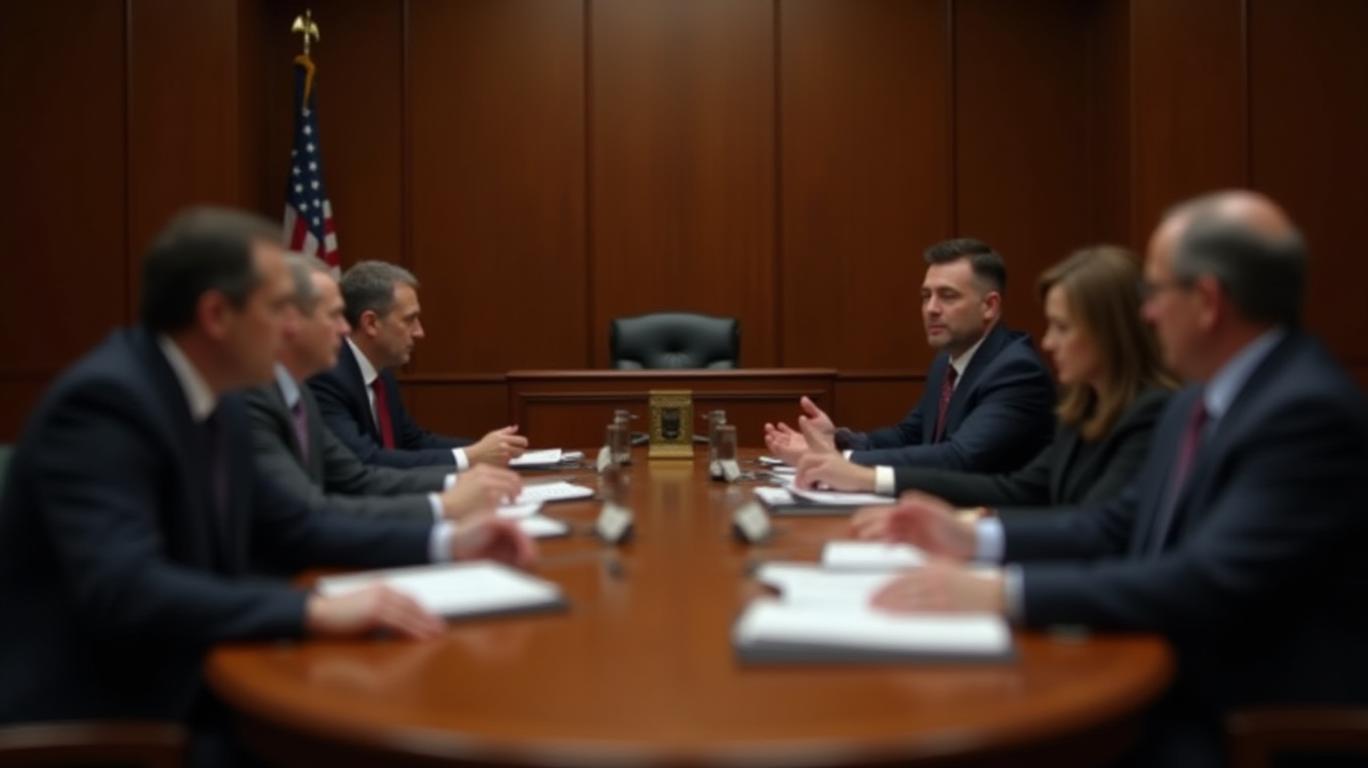Ripple and SEC in Settlement Talks Over XRP Classification
The legal dispute between Ripple and the U.S. Securities and Exchange Commission (SEC) is ongoing, with recent developments indicating that settlement negotiations may be underway. The lawsuit, initiated in late 2020, revolves around the classification of Ripple's XRP token as a security. The resolution of this case could have far-reaching implications for the broader cryptocurrency industry, potentially setting a precedent for the regulation of other digital assets.
Ripple has consistently argued that XRP is not a security but a currency used for cross-border payments. The company contends that the SEC's lawsuit is an overreach of regulatory authority and that the agency has failed to provide clear guidelines for the cryptocurrency industry. Ripple's legal team has been actively engaged in settlement discussions with the SEC, with both parties reportedly making progress towards a resolution.
One of the central issues in the lawsuit is whether Ripple's sale of XRP tokens constituted an unregistered securities offering. The SEC alleges that Ripple's executives, including CEO Brad Garlinghouse and co-founder Chris Larsen, were aware that XRP was a security and intentionally misled investors. Ripple, however, maintains that it did not engage in any wrongdoing and that the sale of XRP was a legitimate business transaction.
The possibility of a settlement has raised hopes among Ripple investors and industry observers that the legal uncertainty surrounding XRP could soon be resolved. A settlement would allow Ripple to focus on its core business of providing cross-border payment solutions, while also providing clarity for other companies operating in the cryptocurrency space. However, it remains uncertain whether a settlement can be reached, as both parties have significant stakes in the outcome of the lawsuit.
In addition to the legal battle, Ripple has been exploring the possibility of going public through an initial public offering (IPO). While the company has not announced any definitive plans for an IPO, industry analysts have speculated that a successful resolution of the SEC lawsuit could pave the way for Ripple to go public. An IPO would provide Ripple with access to additional capital and allow it to expand its operations, while also providing investors with the opportunity to participate in the company's growth.
Despite the potential for a settlement and the possibility of an IPO, the legal battle between Ripple and the SEC is far from over. The case is currently in the discovery phase, with both parties exchanging documents and evidence. The next major milestone in the lawsuit is expected to be a summary judgment motion, in which the parties will ask the court to rule in their favor without a full trial. The outcome of the summary judgment motion could have a significant impact on the trajectory of the case and the potential for a settlement.
Prominent crypto lawyer James Farrell has suggested that the recent pause in the case could indicate significant developments. The court has halted the appeal for 60 days after both Ripple and the SEC jointly requested it. Farrell believes that Ripple and the SEC might be working on two key issues: a possible settlement and an “indicative ruling” from Judge Torres. Ripple seeks the judge's approval to sell private tokens under certain rules, which is currently restricted due to past violations.
If Ripple cannot sell tokens privately, it faces significant challenges in going public anytime soon. While other crypto companies might proceed with IPOs, Ripple could be delayed for years. Farrell outlines two potential paths for resolution. In the first scenario, Ripple sends a settlement offer to the SEC. If the SEC agrees but denies the motion to change the rules, Ripple will settle the case, and the appeal ends. However, Ripple will still need Judge Torres' approval to change the rules, which could take another 3 to 6 months and is not guaranteed.
The second path is more complex but has greater potential. If the SEC agrees to both the settlement and Ripple's request to change the rules, the case will return to Judge Torres. She will then decide the next steps, but this process could still take months, depending on her pace. If all goes smoothly, a settlement could be reached and the appeal dismissed within a month. However, if Ripple needs to file separately with Judge Torres after the appeal ends, that decision could take another 3–6 months.
If the SEC and Ripple cannot reach an agreement, the case may return to the appeal process, potentially extending the timeline into 2026 or even 2027. For now, all eyes are on the SEC's next move, expected by June 15. The legal battle between Ripple and the SEC continues to be a closely watched development in the cryptocurrency industry. While settlement talks are ongoing and the possibility of an IPO remains on the horizon, the outcome of the lawsuit is still uncertain. The case underscores the need for clear regulatory guidelines in the cryptocurrency space and the potential consequences of regulatory overreach. As the legal battle continues to unfold, industry observers will be watching closely to see how it ultimately resolves.

Quickly understand the history and background of various well-known coins
Latest Articles
Stay ahead of the market.
Get curated U.S. market news, insights and key dates delivered to your inbox.



Comments
No comments yet